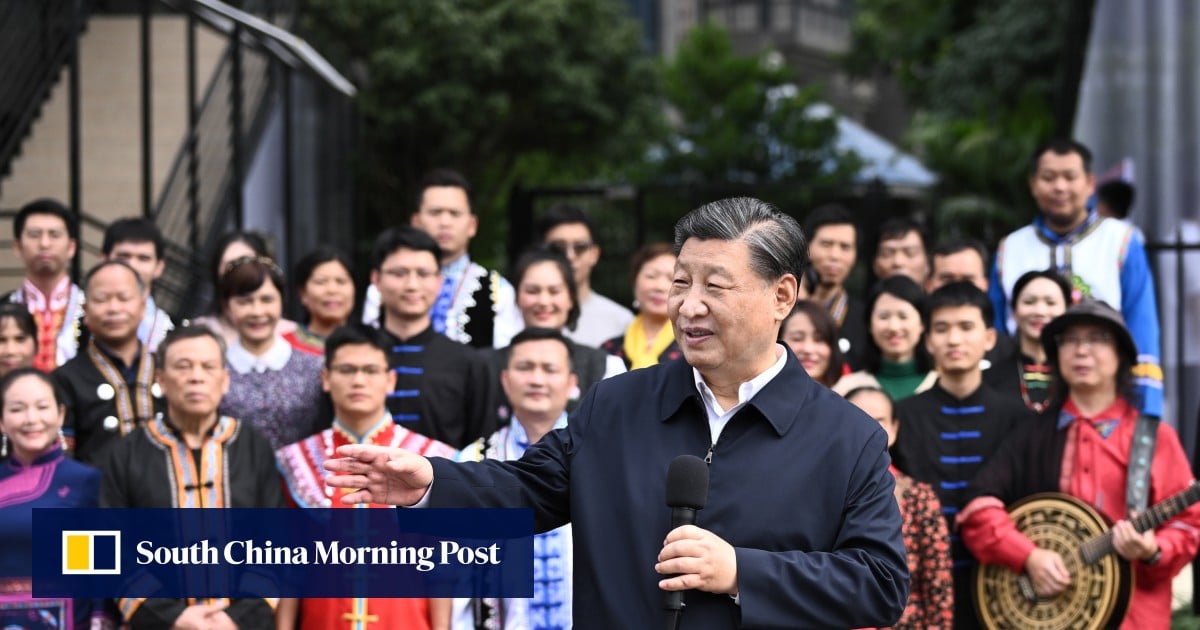He urged them to help build a China-Asean community with a shared future, deepen and expand cooperation with Asean countries in commerce, labour, industry, science and technology and education.
Xi, who is also China’s top military commander, met senior People’s Liberation Army officials stationed in Nanning on Friday morning.
The Chinese government set up the information harbour in 2015, aiming to become a digital gateway to its Asean neighbours through application of technology such as big data and telecommunications, and training of Asean personnel.
According to the company, it has around 1,000 employees and its main business areas include “industrial internet”, digitalisation of government and enterprises, and cloud communication services.
Vietnam, which borders Guangxi, is an Asean member and Xi was returning from a two-day trip to Hanoi where the two countries agreed to step up cooperation and build a community with a “shared future”.
The deal includes greater cooperation on security matters and possible Chinese investment in Vietnam’s rail links and security, telecoms and digital infrastructure.
A Peking University political researcher said that by making such stopovers, Xi was trying to impart urgency into Chinese officialdom.
“By immediately following up on the things agreed in his Vietnam visit, he wants to show a sense of urgency, telling Communist Party officials not to be slack, not to waste time, and not to have a laid-back attitude, especially as China’s economy is experiencing a sharp downturn,” the researcher said, declining to be named.

According to Xinhua, Xi also visited the Panlong community in Nanning’s Liangqing district, where residents from the Zhuang, Yao and Mulao ethnic minorities sang a folk song to Xi.
According to the city government, the community’s residents include more than 8,000 people from 15 ethnic groups.
Guangxi has the country’s biggest population of ethnic minorities, with 19 million people among the non-Han Chinese residents.
The region is the poster child for ethnic harmony because economic and cultural ties mean there has been less tension between the groups, compared with places such as Xinjiang and Tibet which also have large non-Han communities.
On Thursday afternoon, he also inspected a sugar cane plantation in the city of Laibin, learned about the development of the sugar industry, Xinhua said.







